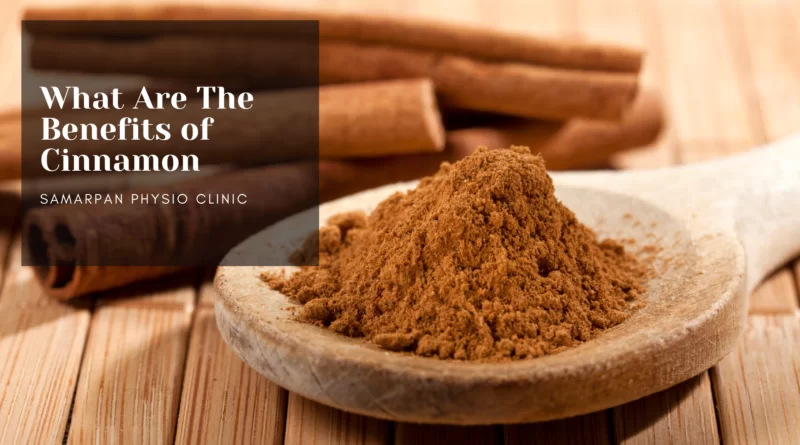What Are The Benefits of Cinnamon?
Cinnamon is a spice that comes from the branches of trees in the Cinnamomum family. It comes from South America, Caribbean, and Southeast Asia.
Research suggests that it contains a variety of antioxidant, anti-inflammatory, and antimicrobial properties. This can help protect a person from various diseases and conditions.
People have used it since 2000 BC in ancient India, China, Sri Lanka, and Egypt, where it was held in high esteem. In the Middle Ages, doctor’s treated conditions like coughs, arthritis, and sore throats.
It is now the 2nd most commonly used spice, after black pepper, in western countries such as the US, Canada, and Europe.
It is also available in powder form or whole as a spice. People can also use cinnamon essential oil and supplements.
There are 2 types of Cinnamon – cassia, and Ceylon. Both have different nutritional profiles.
Some studies suggest that compounds in cinnamon have antioxidant, anti-inflammatory, anti-diabetic, and antimicrobial properties and may offer protection against cancer and cardiovascular disease, among other things. However, more case study is helpful to confirm the benefits of cinnamon.
This article looks at the purported health benefits of different types of cinnamon and how to incorporate them into your diet.
Table of Contents
Health Benefits of Cinnamon
1. Protect Your Brain
In a laboratory setting, it stopped the build-up of a brain protein that is a hallmark of Alzheimer’s disease.
In another study, rats given cinnamon did better in a water maze designed to test their memory. Of course, we have to see if these findings translate to human testing.
2. Reduce Inflammation
In a recent lab study that looked at 115 foods, it was found to be the best fighter against inflammation.
Since inflammatory diseases such as rheumatoid arthritis become more common with age, further research could support the use of cinnamon as a natural remedy for older adults to help with these types of conditions.
3. Lower Cholesterol
When 60 adults in a small study ate about 1/4 teaspoon of cinnamon each day for 40 days, their LDL (“bad”) cholesterol dropped.
Other research found that a similar amount of cinnamon, consumed daily for up to 18 weeks, can lower LDL and total cholesterol while raising HDL (“good”) cholesterol. But it is too early to recommend it as a treatment for high cholesterol.
4. Get Rid of a Yeast Infection
It appears to have the power to destroy the Candida albicans fungus that causes most vaginal yeast infections.
At least it works in the lab. It’s not clear how or even if you could use it to suppress or treat a yeast infection.
5. Contains powerful medicinal properties
It is a spice that is made from the inner bark of trees scientifically also known as Cinnamomum.
And it has been also used as an ingredient throughout history, dating back to ancient Egypt. It used to be rare and valuable and was considered a gift fit for a king.
Nowadays, it is affordable and widely available in most supermarkets. It is also found as an ingredient in various foods and recipes.
There are two main types of cinnamon:
- Ceylon Cinnamon: This type is also known as “true” cinnamon.
- Cassia cinnamon: This is the most common variety today that people generally call “cinnamon”.
By cutting the stems of cinnamon trees then cinnamon is made. Then the inner bark is removed and the woody parts are removed.
When it dries, it forms strips that curl into rolls called cinnamon sticks. These sticks can be ground to make cinnamon powder.
The distinctive smell and taste of cinnamon is caused by the oil part, which has a very high content of the compound cinnamaldehyde.
Scientists believe that this compound is responsible for most of cinnamon’s powerful effects on health and metabolism.
6. Loaded with antioxidants
Antioxidants protect your body from oxidative damage caused by free radicals.
it is loaded with powerful antioxidants, including polyphenols.
One study found that cinnamon supplementation can significantly increase blood levels of antioxidants while lowering levels of markers used to measure inflammation, such as C-reactive protein.
In fact, cinnamon’s antioxidant effects are so strong that it can even be used as a natural food preservative.
7. Protect against heart disease
Inflammation is incredibly important because it helps your body respond to infections and repair tissue damage.
However, inflammation can become a problem when it is chronic and directed against your body’s own tissues.
It can be helpful in this regard. Studies show that this spice and its antioxidants have powerful anti-inflammatory properties.
8. Beneficial effects on neurodegenerative diseases
Neurodegenerative diseases are characterized by progressive loss of nerve cell structure or function.
Alzheimer’s and Parkinson’s are two of the most common types.
Certain compounds found in cinnamon appear to inhibit the build-up of a protein called tau in the brain, which is one of the hallmarks of Alzheimer’s disease.
Cinnamon helped protect neurons, normalize neurotransmitter levels, and improve motor function.
9. Cinnamon may protect against cancer
Cinnamon has been widely studied for its potential use in cancer prevention and treatment.
Overall, evidence is limited to test-tube and animal studies suggesting that cinnamon extracts may protect against cancer.
It works by reducing the growth of cancer cells and the formation of blood vessels in tumors and appears to be toxic to cancer cells and causes cell death.
One study in mice with ovarian cancer found that cinnamaldehyde can block the expression of certain proteins involved in cancer growth.
These findings were supported by test-tube experiments that showed that cinnamaldehyde could reduce the growth and spread of ovarian cancer cells.
However, more research is needed to evaluate cinnamon’s potential anticancer effects in humans.
10. Helps lower blood sugar levels
It is well known for its blood sugar-lowering properties.
In addition to its beneficial effects on insulin resistance, It may lower blood sugar through several other mechanisms.
First, it has been shown to reduce the amount of sugar that enters your bloodstream after a meal.
It does this by interfering with a number of digestive enzymes, which slows the breakdown of carbohydrates in your digestive tract.
Second, a compound in cinnamon can mimic the effects of insulin to improve the uptake of sugar into cells.
Numerous human studies have confirmed the beneficial effects of cinnamon, showing that it can lower fasting blood sugar levels and improve hemoglobin A1c, a marker of long-term blood sugar control.
An effective dose is usually 1-6g or about 0.5-2 teaspoons. of cinnamon per day if you have Diabetes.
11. May prevent bacterial and fungal infections
Cinnamaldehyde, one of its main active ingredients in it, can be beneficial against various types of infections.
Test-tube studies suggest that cinnamon oil might help kill some of the fungi that cause respiratory tract infections.
It can also obstruct the growth of a few bacteria, such as Listeria and Salmonella.
Additionally, cinnamon’s antimicrobial effects may also help prevent tooth decay and reduce bad breath.
However, the evidence is mostly limited to test-tube studies, so more human research is needed.
12. May have antiviral properties
Some research suggests that it may help protect against certain viruses.
For example, cinnamon extracted from Cassia varieties is believed to be beneficial against HIV-1, the most common strain of HIV in humans.
Other studies suggest that it may also protect against other viruses, including the flu and dengue fever, a mosquito-borne viral infection.
However, further human studies are needed to confirm these effects.
Is Cinnamon safe for everyone?
Cinnamon is generally considered safe for most people when consumed as a culinary spice and in small amounts – no more than 1 teaspoon per day is considered safe for most adults, less for children. In rare cases, some people may develop allergic contact dermatitis.
It’s worth remembering that most cinnamon bought in supermarkets is a variety called Cassia cinnamon – it has a stronger flavor and is cheaper to buy. However, it is high in compounds called coumarins, which can cause toxicity in large doses.
Ceylon or “true” cinnamon has relatively low levels of coumarins and may be better tolerated.
If consumed in large amounts, it can interact with prescription medications, including those for diabetes, heart, and liver disease.
If you take prescription medication, have a relevant medical condition or have other related problems, please consult your Doctor (GP).







